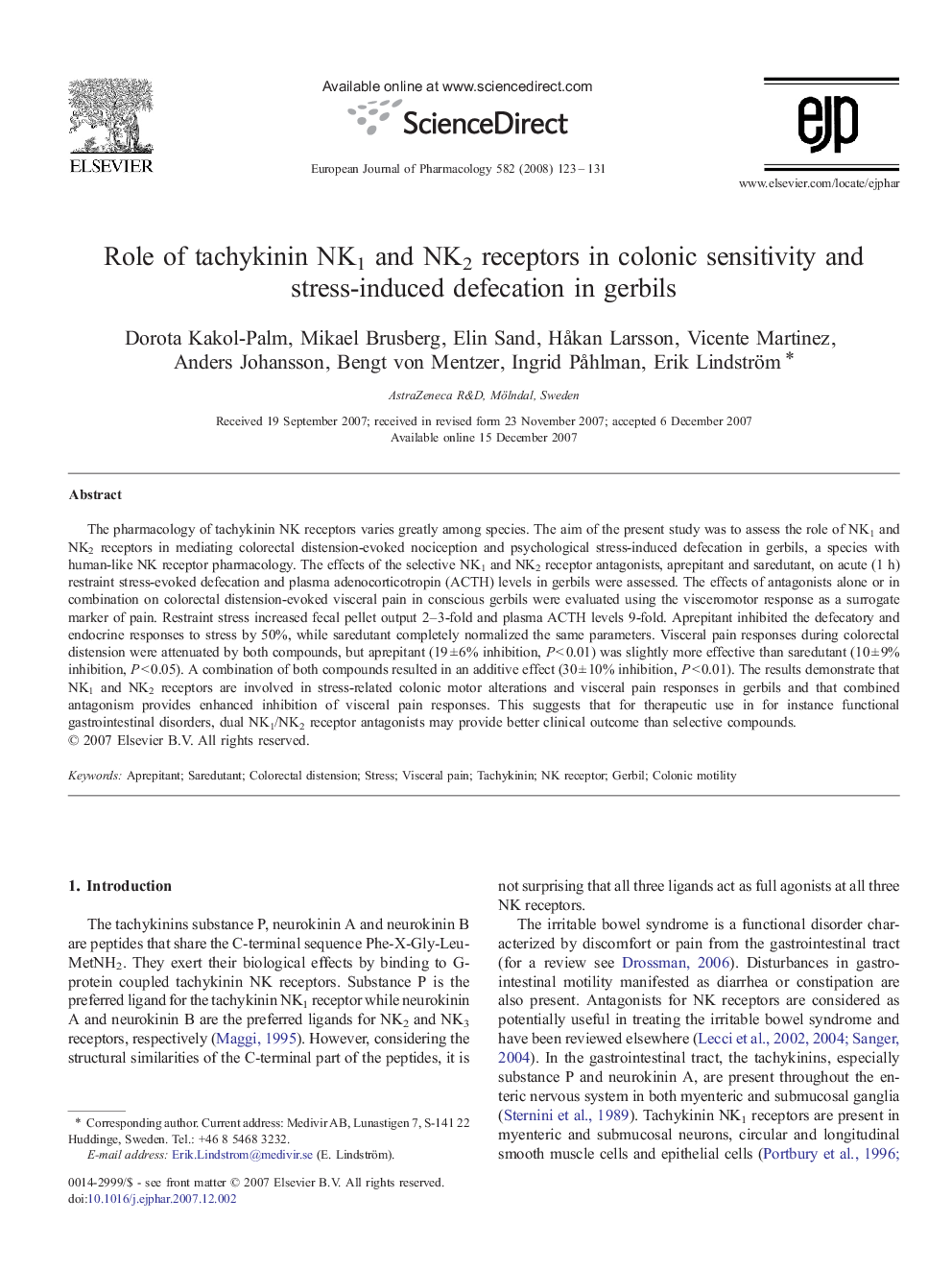| Article ID | Journal | Published Year | Pages | File Type |
|---|---|---|---|---|
| 2535485 | European Journal of Pharmacology | 2008 | 9 Pages |
The pharmacology of tachykinin NK receptors varies greatly among species. The aim of the present study was to assess the role of NK1 and NK2 receptors in mediating colorectal distension-evoked nociception and psychological stress-induced defecation in gerbils, a species with human-like NK receptor pharmacology. The effects of the selective NK1 and NK2 receptor antagonists, aprepitant and saredutant, on acute (1 h) restraint stress-evoked defecation and plasma adenocorticotropin (ACTH) levels in gerbils were assessed. The effects of antagonists alone or in combination on colorectal distension-evoked visceral pain in conscious gerbils were evaluated using the visceromotor response as a surrogate marker of pain. Restraint stress increased fecal pellet output 2–3-fold and plasma ACTH levels 9-fold. Aprepitant inhibited the defecatory and endocrine responses to stress by 50%, while saredutant completely normalized the same parameters. Visceral pain responses during colorectal distension were attenuated by both compounds, but aprepitant (19 ± 6% inhibition, P < 0.01) was slightly more effective than saredutant (10 ± 9% inhibition, P < 0.05). A combination of both compounds resulted in an additive effect (30 ± 10% inhibition, P < 0.01). The results demonstrate that NK1 and NK2 receptors are involved in stress-related colonic motor alterations and visceral pain responses in gerbils and that combined antagonism provides enhanced inhibition of visceral pain responses. This suggests that for therapeutic use in for instance functional gastrointestinal disorders, dual NK1/NK2 receptor antagonists may provide better clinical outcome than selective compounds.
